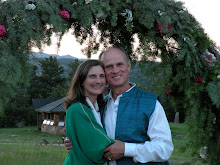-->
Notes on a visit to
the Mondragon worker-owner cooperative system, by David and Lila Tresemer,
September 2012 (www.MountainSeas.com.au and www.DavidandLilaTresemer.com), PART
IV
We were a bit surprised when we attended the university to
discover how little they understood about history, culture and context. Mondragon
may face the challenge of being too isolated from world affairs and awareness
of global concerns outside their own geography. One of the members of our
visiting group said that the first response to this system in the United States
would be, “Oh, that’s just Marxist,” with the subtext that it’s communist and
will take away your rights and make your life more miserable. Actually, in
Mondragon the high value on freedom underpins the whole system – freedom from
the whims of overpaid executives at big companies. However, we understood how
this knee-jerk reaction of “Marxist!” would occur.
So we asked a student, “How do you
respond to criticism that this system of cooperatives is Marxist?”
The student looked puzzled, “Who?”
“Karl Marx,” we said, “social
theorist of the 19th century?”
Blank look.
We asked further, “Do they teach
about Karl Marx or the philosophy of the relation of labor and capital?” The
student shook her head, “Sorry, I haven’t heard of him, and no they don’t.”
Unbelieving that these students
hadn’t been prepared to respond to the criticism of “Marxist!,” we asked three
more students. Same thing. They had never heard of him - or any of the other philosophers who have wrestled with these experiments of social organization. They simply thought that
the worker-owner cooperative ideology stood on its own.
We realize that one’s philosophy of work has to be governed
by your sense of “where is this leading?” It seems that the western ideal
pictures a rise to the high echelons of the corporate world, bonuses of stock
options and baskets of money – then a private jet, a gated mansion in a gated
community likely in the Caribbean, with staff who are not uppity because they
come from a poor neighborhood and can easily be replaced. The ideal and goal of
Mondragon is to ensure a vibrant and healthy community of human beings putting
their efforts into work that provides their families with an adequate income
while producing a product useful to other people in the world.
The question: “Is it possible to have a people-focused
structure that can be competitive and resilient?” Mondragon answers, “Yes!”
Tours of interested people are now coming from all over the
world. Because, no matter what the reactions are – “Marxist!” or “Hidden
Capitalist!” – this system creates jobs, maintains jobs, and solidifies whole
communities.
We may have gotten some of our facts incorrect, and there
are plenty of other facts to learn about their systems. Several managers
repeated, “This isn’t paradise, and we’re not perfect,” same words, which
suggests that the central group devised this response to criticism. What they
have is not paradise, but very hopeful.
More in the last part, Part V.

No comments:
Post a Comment